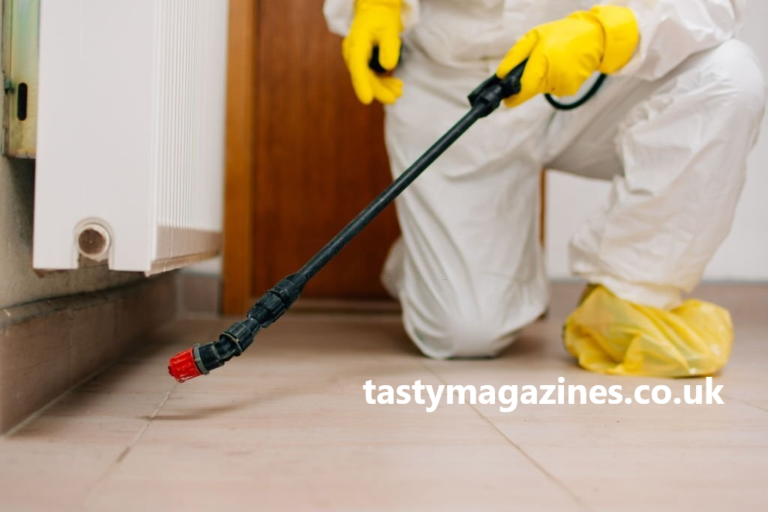Post Preview
Table of Contents
- The Importance of Pest Control
- Common Household Pests and How to Identify Them
- Preventive Measures: Keeping Pests Out
- Natural Remedies for Pest Control
- When to Call a Professional
- Seasonal Tips for Pest Control
- Frequently Asked Questions
The Importance of Pest Control
Effective pest control is crucial for maintaining a healthy and safe home environment. Pests not only cause discomfort but can also spread diseases and damage property. Knowing an exterminator in Concord can make a difference in safeguarding your home from these unwelcome guests. However, understanding the importance of pest control and using proactive measures can prevent many issues before they start.
Effective pest control is more than just a comfort; it’s necessary. If an infestation is not treated immediately, it can cause severe property damage and several issues. For example, cockroaches and other insects can cause asthma attacks and allergies, and rodents can cause fire hazards by chewing through electrical wires. This combination of risks underscores the need to implement robust pest control measures and seek professional help when necessary.
Common Household Pests and How to Identify Them

Finding common home pests is the first step toward efficient pest management. Here are the most prevalent home invaders and how you can spot them:
- Ants: Ants are often found in kitchens or bathrooms in search of food and water. You’ll likely notice trails of small insects leading to food sources. Keep an eye out for tiny piles of dirt or sand, which could indicate their nests.
- Bed Bugs: These pests are known for their tiny, brownish appearance and the small red or brown spots they leave on bedding and furniture. They are usually active at night and hide in crevices during the day. Bites on the skin and blood stains on sheets are clear indicators.
- Termites: Identifying termites involves looking for mud tubes on walls, hollow areas in wood structures, or discarded wings around windows and doors. Termites can cause devastating damage to wooden structures, making early detection crucial.
- Rodents: Mice and rats can be spotted by their droppings, gnaw marks, and nesting materials found in dark, secluded spots such as attics or basements. Listen for scratching sounds in walls and ceilings, especially at night.
Preventive Measures: Keeping Pests Out
Taking preventative action is essential to warding off pests. Ensuring pests don’t enter your home in the first place can save you a lot of trouble and expense. Here are some practical tips:
- Seal any holes and cracks near doors, windows, and walls to prevent entry. Use caulk and weather stripping to eliminate gaps.
- To remove potential food sources, store food in airtight containers and dispose of waste immediately—also, regularly clean countertops and floors to remove crumbs and spills.
- Maintain cleanliness in food preparation and consumption areas. Vacuum and mop regularly to prevent the buildup of food particles.
- Regularly inspect and clean gutters to prevent standing water that attracts pests. Standing water can breed mosquitoes and other insects.
Adopting these measures creates a less attractive environment for pests, making your home safer and healthier.
Natural Remedies for Pest Control

It is possible to eradicate pests with safer natural remedies for people and animals. Here are some tried-and-tested methods:
- Essential Oils: Peppermint and lavender oils can be used in sprays to deter pests. To repel insects, dilute these oils with water and mist the area around entry points and infested areas.
- Vinegar: A mixture of vinegar and water can effectively repel ants and flies. Use it to wipe down surfaces and areas where you’ve seen pests. The pungent smell disrupts their scent trails.
- Diatomaceous Earth: This natural powder can eliminate insects like bed bugs and fleas. Sprinkle it in areas where pests are found, and it will dehydrate and kill them.
When to Call a Professional
While DIY methods can manage minor issues effectively, some require professional intervention. Consider calling a professional exterminator in these scenarios:
- Suppose a severe infestation doesn’t respond to natural or over-the-counter remedies. Persistent pests might require specific treatments that only professionals can provide.
- Suppose you suspect termites. Termites can cause extensive structural damage and require specialized inspections and treatments to eradicate.
- Suppose the pest control solution involves harmful chemicals that require expert handling. Professionals have the training and equipment to use these chemicals safely.
Professionals can provide a comprehensive assessment and treatment plan, ensuring long-term pest management.
Seasonal Tips for Pest Control
Pest control requirements change with the seasons. Here are some tips to keep pests under control throughout the year:
- Spring: Focus on sealing entry points and removing debris around your home. Spring showers can create moisture problems, so ensure proper drainage.
- Summer: Keep windows and doors closed or install screens to prevent insects from entering. Outdoor activities and picnics can attract pests, so be vigilant about cleaning up.
- Fall: Inspect and repair any external damage to your home in preparation for winter. Pests seek warmth indoors during this time, so secure your home.
- Winter: Check attics and basements for rodents seeking shelter from the cold. Look for signs of nesting or droppings and set traps if necessary.
Frequently Asked Questions
Q: How can I tell if I have a termite infestation?
A: Signs include mud tubes on walls, hollow-sounding wood, and discarded wings. Early detection is crucial to prevent significant structural damage.
Q: Are natural remedies effective?
A: Many natural remedies can effectively manage minor infestations, though severe cases may require professional intervention. Natural methods are often safer and can be part of an integrated pest management plan.


